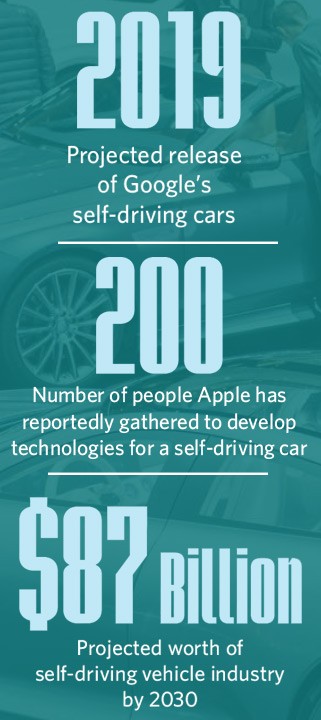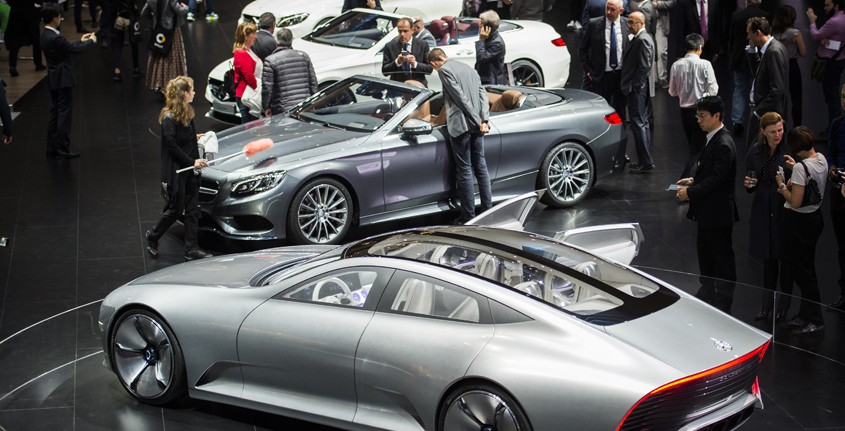Cars and computers are converging, and automakers are on edge.
With vehicles increasingly networked and software-dependent, and self-driving cars on the horizon, “connectivity” was the buzzword among the big players at the 2015 International Motor Show in Frankfurt, Germany.
The show took place in September as Asian, European and North American automakers brace for Google’s and Apple’s entry into their sector. The new competition may motivate established vehicle manufacturers to boost their design innovation and performance, and avoid being on the losing end of potential industry disruption.
 Google has been working on a fully self-driving automobile prototype since 2009 and will have made a few hundred electric self-driving cars by the end of this year. Apple reportedly plans to enter the market in 2019 with a semi-autonomous electric car. In addition to technological expertise, Google and Apple have the cash to make significant investments in automotive research and development.
Google has been working on a fully self-driving automobile prototype since 2009 and will have made a few hundred electric self-driving cars by the end of this year. Apple reportedly plans to enter the market in 2019 with a semi-autonomous electric car. In addition to technological expertise, Google and Apple have the cash to make significant investments in automotive research and development.
If these companies do become key players in the auto industry, traditional carmakers are concerned their role could be reduced to only producing vehicle hardware. Share on X “We do not plan to become the Foxconn of Apple,” Daimler AG CEO Dieter Zetsche said in Frankfurt, referring to the Taiwanese company that manufactures iPhones.
But industry dynamics are clearly evolving. Google is working with ZF, a large German automotive supplier of components, and other suppliers to source materials for its vehicle. In 2014, Apple CEO Timothy D. Cook reportedly visited a BMW factory in Germany that manufactures electric cars.
Meanwhile, established automakers are investing in more efficient operations and cleaner products. Daimler has reorganized its factories to help it introduce its Mercedes C-Class line to four continents. Toyota continues to lead the auto industry’s efforts for cleaner mobility, offering the widest range of hybrid vehicles—achieving the milestone of 8 million of these cars sold worldwide.
And in the U.S., the auto industry reached its highest rate of sales since 2006 while raising the fuel efficiency of the average car by nearly 30 percent higher than the average car in 2007.






